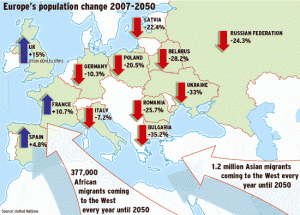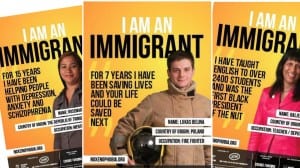
In this blog post I am going to debate whether it is the language skills of international people that come to UK or is it the system that is in the way of integration?
Migrants have historically formed a significant part of the tourism industry workforce (Baum, 2006; Choi, Woods & Murmann, 2000; Williams & Hall, 2000). It has been argued that the relationship between migration and tourism employment remains partly because the international workers have been used as a resolution for shortages in jobs where the locals are not willing to engage in – low pay, low status and seasonal employment (Choi et al., 2000; Williams & Hall, 2000). What pushed employer demand for migrant labor further, was undoubtedly the ease of hiring and firing resulting from levels of employment protection law by international standards (Rogers, Anderson & Clark, 2009). Besides, the comparative ease of access to jobs in tourism industry, limited opportunities in other sectors as well as not knowing the host countries language constitute the key motives for taking up work in tourism sector (Anderson, Ruhs, Rogaly & Spencer, 2006; Eade, 2006; Janta & Ladkin, 2009; Janta, Ladkin,Brown & Lugosi, 2011).

The employment in tourism sector gives migrants a chance to develop their language skills that in turn helps migrants to adjust better to life in the chosen destination (Brown, 2008), while its absence can limit access to information or support that leads to social exclusion (Spencer, Ruhs, Anderson & Rogaly, 2007). In my own experience, if talking about social exclusion, when I first came to UK in 2010 I applied to a high school in order to go to university although I had finished high school in my own country. So in the very beginning of my time in the UK school I was put in an English language class, which would be logical and fine right? Except I was put in a class with all the other migrants who didn’t speak English or their language skills were very limited – did I mention I spoke fluent English as I have been studying foreign languages since 5th grade and English was my third?! So why wasn’t I put in a class with English students? A good question I would say. Subsequently from this experience and others I am inclined to think that it is more likely to be the system that keeps foreigners separate from the natives rather than the language skills they have!?

References:
Anderson, B., Ruhs, M., Rogaly B., & Spencer, S. (2006). Fair Enough? Central and East European Migrants in low-wage employment in the UK. Report written for the Joseph Rowntree Foundation, published as a COMPAS Report. Available from: http://www.jrf.org.uk/sites/files/jrf/1617-migrants-low-wage-employment.pdf (Accessed on: 19.04.2015).
Baum, T. (2006). Human resource management for tourism, hospitality and leisure: An international perspective. Thomson Learning
Brown, L. (2008). Language and anxiety: an ethnographic study of international postgraduate students. Evaluation and Research in Education, 2(3), 75-95.
Choi, J., Woods, R. H., & Murrmann, S. K. (2000). International labor markets and the migration of labor forces as an alternative solution for labor shortages in the hospitality industry. International Journal of Contemporary Hospitality Management, 12(1), 61–66.
Eade, J., Drinkwater, S., & Garapich, M. (2006). Class and Ethnicity: Polish migrants in London. Research Report for the RES-000-22-1294 ESRC Project funded by the
UK Economic and Social Research Council (ESRC), University of Surrey.
Janta H., & Ladkin, A. (2009). Polish migrant labour in the hospitality workforce: Implications for recruitment and retention’. Tourism, Culture and Communications,9(1/2), 5-15.
Janta, H., Brown, L., Lugosi, P. and Ladkin, A. (2011) Migrant relationships and tourism employment. Annals of Tourism research Vol. 38 (4)
Rogers, A., Anderson, A. and Clark N. (2009) Recession, vulnerable workers and immigration, COMPAS background report, Oxford University
Spencer, S., Ruhs, M., Anderson, B., & Rogaly B. (2007). Migrants’ lives beyond the workplace: The experiences of Central and East in the UK, Joseph Rowntree Foundation.
Williams, A., & Hall, C.M. (2000). Tourism and migration: New relationships between production and consumption. Tourism Geographies, 2(1), 5-27.






